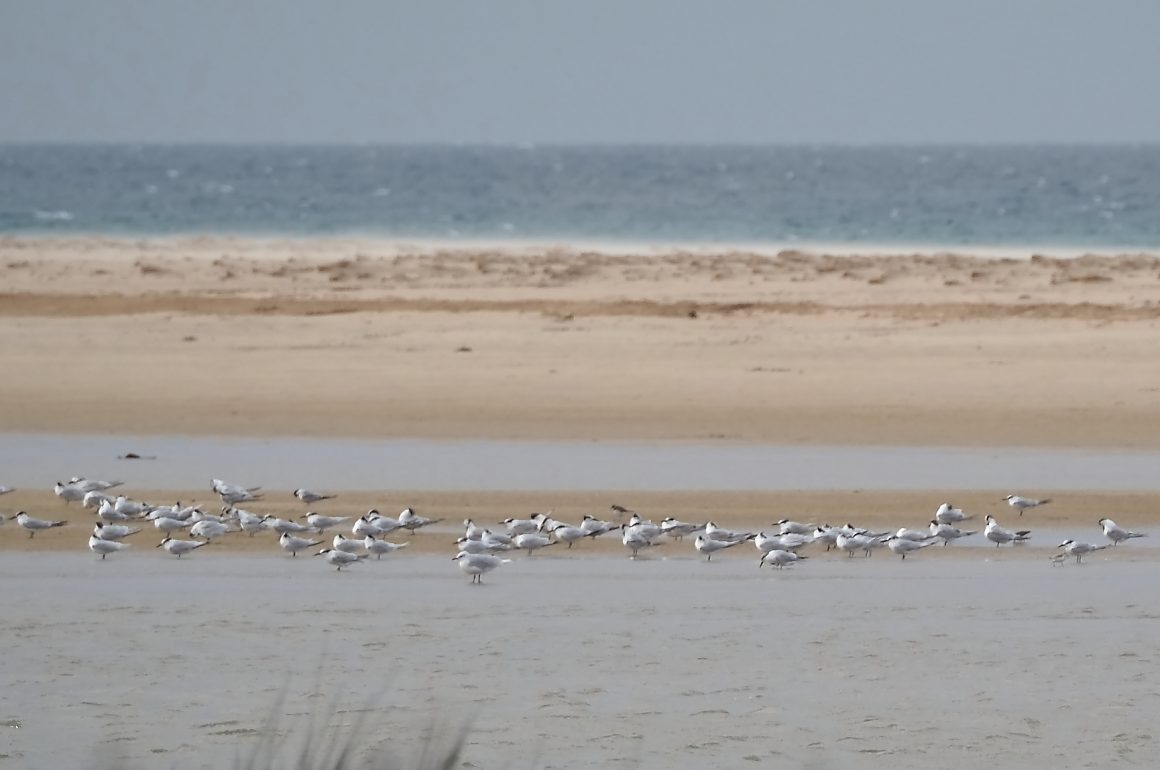
In The Music Man, a wonderful work of musical theater to which I was much exposed as a child, the first scene begins with several traveling salesmen considering the threat of a new, even less honest competitor. One of them repeatedly insists that the interloper could not be serious competition because “he doesn’t know the territory!”
I have found myself thinking often about this line, as I attempt to bird the southern tip of Spain. Even though this is the third time I have done so, there are still so many things I find difficult. For indeed, I Do Not Know the Territory.
I set out (one hour too) early a week ago, hoping to see the raptor migration spectacle at Andalucía’s Cazallas Soaring Bird Observatory. Almost two years earlier, I had been amazed by the constant parade of hawks, eagles and vultures taking flight there to cross the Straits of Gibraltar. But this time, wild winds and the threat of rain left me entirely alone, as far as other birders are concerned, and with not a bird of prey in sight. Or perhaps it was the late October date? I don’t know for sure… Because I Do Not Know the Territory.
Defeated, I moved to a much more productive nearby shorebird observation site. After a few hours there, I moved to some nearby cliffs overlooking the Mediterranean, hoping to perhaps see some seabirds. As I walked this cliff area, small passerines regularly flew out of the dense, wind-sculpted brush, over my head while fighting the still-wild winds, and quickly back into more brush. Had this happened at home in Mexico, I would probably have known which birds these were, just by their habitat and habits. But here? Don’t forget: I Do Not Know the Territory. If I didn’t manage a decent photo of them to study long and hard back at our hotel, I was out of luck.
Don’t get me wrong. The Campo de Gibraltar area is one wonderful territory. In spite of the almost complete lack of raptors, I still managed to see 30 species in one morning. I even caught a pair of lifers. But I must say, my ignorance of the Territory is still vast.
It didn’t help that many birds in this area present identification challenges. The gulls ended up being Mediterranean and Yellow-legged Gulls; no Black-headed or Lesser Black-backed Gulls turned up. The terns all seemed to be Sandwich Terns; not Common Terns, as I had first guessed. Peeps (Stints, in Europe) were Dunlins and Sanderlings: two species I might also see in near my home, although not that easily. Plovers were Common Ringed and Kentish. And I eventually determined that those stripy little ground-hugging birds I kept seeing among grass looked suspiciously like American Pipits. They were Meadow Pipits, or perhaps Rock or Tree Pipits. Either way, they gave me one lifer. Eurasian Linnets chirping from the thick shrubs gave me the day’s other lifer.
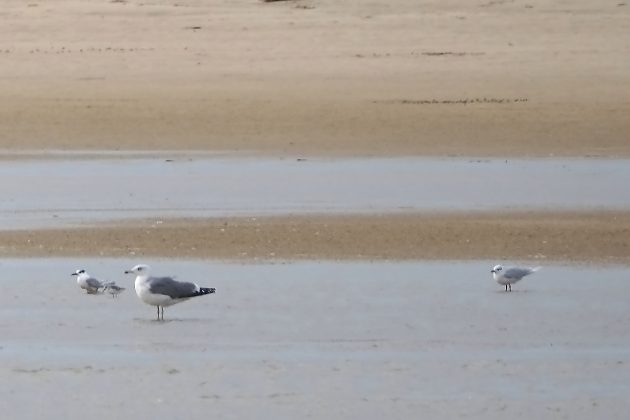
That’s a Sandwich Tern, Dunlin, Yellow-legged Gull, and Mediterranean Gull. I think.
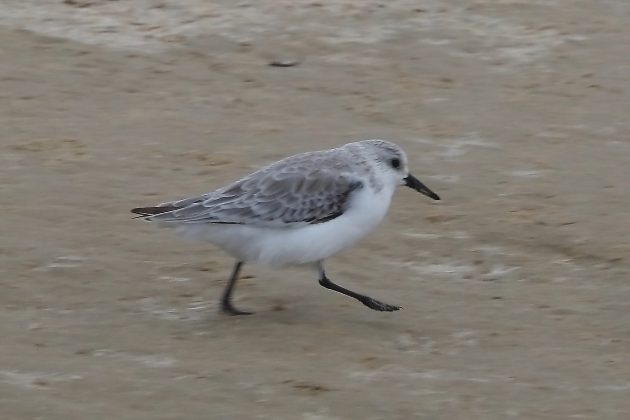
The blur in this photo only begins to suggest how fast this Sanderling moved.
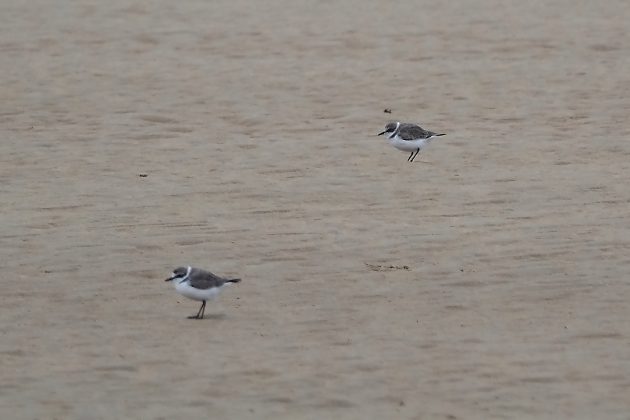
The Kentish Plovers were calmer.
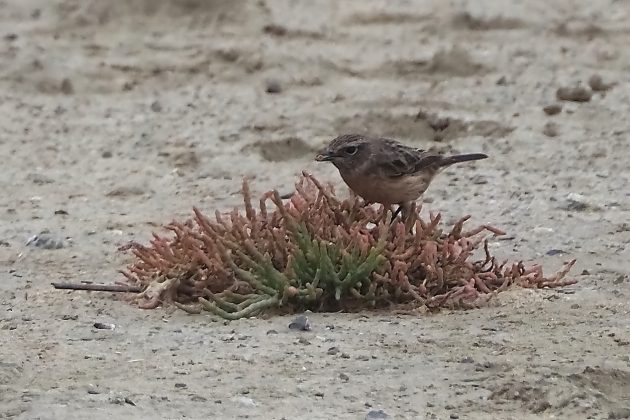
European Stonechats were the only birds that liked to pose for the camera on that cloudy, blustery day.
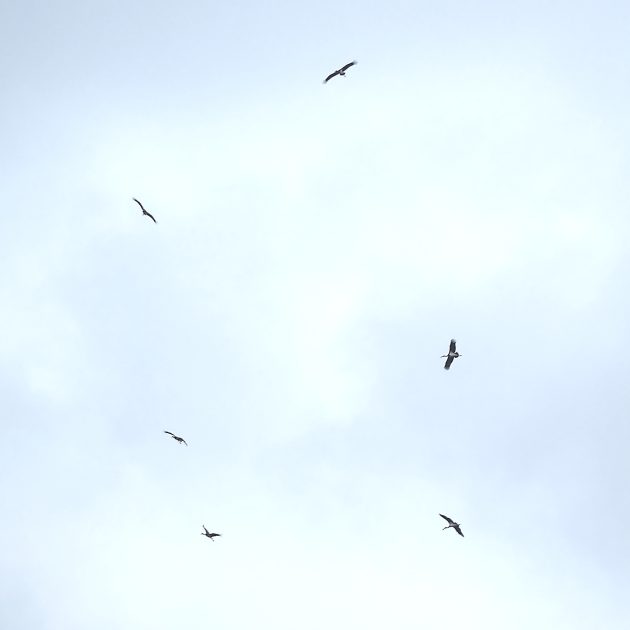
Two years earlier, when there was lots of action at the hawk watch site, the northern Europeans present were thrilled to see Black Storks. But they can also be seen at Los Lances Beach.
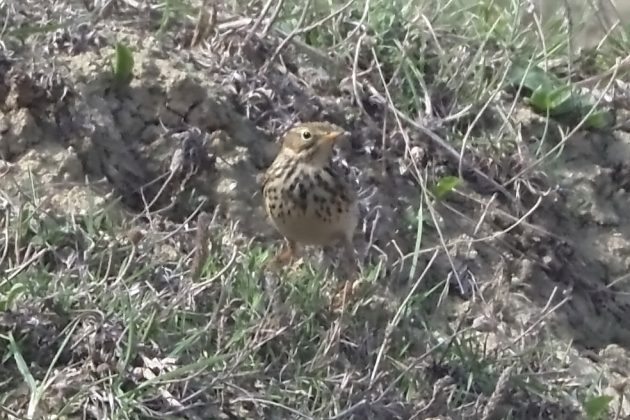
I saw quite a few lifer Meadow Pipits that day. I took great photos of none of them.
(I’m afraid any or all of these IDs may be incorrect. After all, I Don’t Know the Territory.)









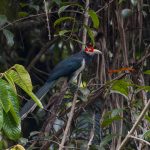
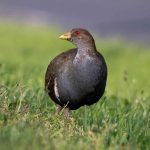
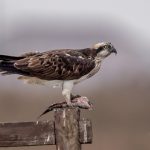

I am commenting on your post from East Java, Indonesia, where the local guides spot most birds about 5 minutes before I notice them. Why? Yes, the title of your post again. (plus they are probably better birders than me anyway)
Nevertheless, I envy your being there.